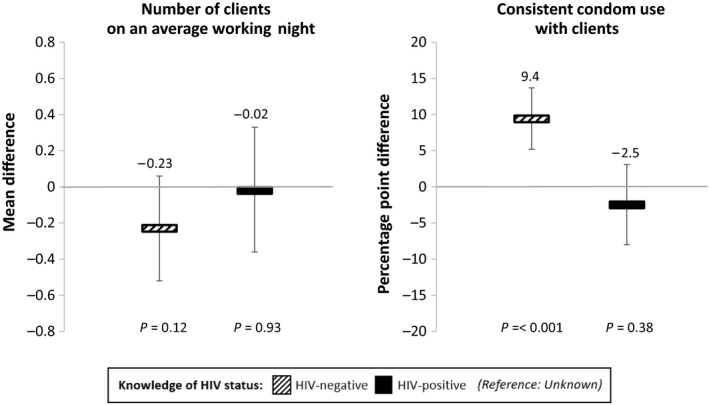Figure 2. The association between FSWs’ knowledge of HIV status and sexual behaviours with clients.

The associations between knowledge of HIV status and sexual behaviours (number of clients per average working night and consistent condom use) were measured using linear panel regressions with individual fixed effects, controlling for study round and calendar month. Standard errors are adjusted for clustering at the level of the peer educator. Number of clients per average working night: the bars show the mean differences in the number of clients between (i) those with knowledge of HIV‐negative status and those with knowledge of unknown HIV status (black striped bars) and (ii) those with knowledge of HIV‐positive status and those with knowledge of unknown HIV status (black bars). Consistent condom use: the bars show the average percentage point differences in the probability of consistent condom use between (i) those with knowledge of HIV‐negative status and those with knowledge of unknown HIV status (black striped bars) and (ii) those with knowledge of HIV‐positive status and those with knowledge of unknown HIV status (black bars). The vertical lines indicate the 95% confidence intervals.
